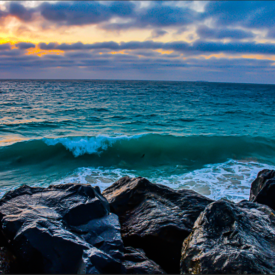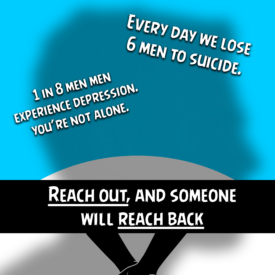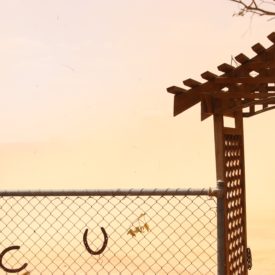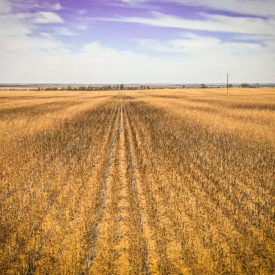The Blockade
David Stulpner, Year 12
The weather, as usual for that time of year, was absolutely stinking hot. Tom was wondering what the point of all this was. An entire blockade, across the entire island, only for the sake of capturing some primitive natives – why couldn’t they just leave them alone? What was –
“Men! At arms!” barked Major MacDhuie, snapping Tom back into reality and away from his rampant daydreaming.
Tom was an Irishman, forced into the British Redcoats against his will. This was perhaps why he felt a slight affinity for the wretched natives of Van Diemen’s Land. A culture that, like his one back home, was being entirely exterminated by the British colonial thugs.
What was the British obsession with wiping out other cultures? It seemed to be a regular pastime of theirs. They had already eliminated the African cultures like a hungry child gobbling up a piece of bread, leaving only the discarded crumbs scattered across the continent. They had also done the same to his homeland, forcing many of his family, who had lived in the small coastal hamlet of Kilconnor in County Mayo, to flee across the oceans to the New World.
“Men! Start advancing!” screamed Major MacDhuie, wiping his moist, sweaty brow with his forearm. All of the men grumbled as they trudged through the thick bushland, most of them probably in the same rebellious frame of mind as Tom. They were forming a blockade across the entirety of Van Diemen’s Land, in an attempt to corner the natives and capture them. It was all part of the British plan to ‘educate’ the indigenous population in the British ways. He knew that this plan would never eventuate. It was all just a guise by the government to senselessly murder the wretched natives, much like the attack on Glencoe. This really outraged Tom. Who were they? Thinking they could play God?
***
It had been what seemed like an eternity since they had been ordered to start the blockade. The weather was only getting hotter, and Tom was starting to feel a little faint and was panting like a tired dog. Why were there so few billabongs? His canteen had run out about 30 minutes ago. No wonder the natives were so primitive. They had to spend their entire lives searching for food and water, meaning they had no time to mentally develop.
“Sir! Some tracks over here!” yelled a soldier, about fifteen feet away from Tom. Major MacDhuie brushed past Tom as he strode over to the other soldier.
“Aye, that’s them all right. We have the primitives under our noses now! Quieten down men! Keep your eyes and ears open!”
With that, the troop descended once again into the monotony of trudging along, only a little quieter than before.
***
They had been trudging along for about half an hour since Major MacDhuie spotted the prints. Everyone was still keeping quiet, making sure they got their job done as efficiently as possible. Suddenly, Tom heard a distant rustling sound among the rotting leaves.
“Sir! I’ve heard something!” He called to Major MacDhuie. As they approached the sound, he could hear the rustling sound of human activity among the weeping white gums, the padded sound of feet hitting the rotting leaves on the forest floor, and the babble of a foreign language as the natives went about their daily activities. Tom’s heart was racing. Rifle cocked and ready to fire, he was sneaking silently through the underbrush. He could see the women, gathered around the fire cooking what looked like some kind of exotic animal. Major MacDhuie had now lowered his voice to an excited whisper, and his moustache was bristling with excitement:
“We’ve found them! Prepare arms!”
Inhumane, Tom thought. He was gaining sadistic pleasure from this, treating it as if it were a fox hunt in Britain. Tom took notice of the children playing what looked like hopscotch, and he felt a twinge of sorrow for them, knowing the terror he was about to implement on them.
“Attack!” yelled Major MacDhuie, hardly containing his sadistic excitement. The natives all looked around, a sense of confusion streaking across their weather-worn faces.
The soldiers all sprinted out from the bush into the clearing, guns pointed. The sense of confusion turned to that of terror, and the natives fled for their lives.
“Follow them!” ordered Major MacDhuie “Follow them and terminate them!”
Tom barrelled after them, like a falcon swooping down on its prey. He heard their footprints dissipate, and he swore to himself as he ran into another clearing. There was a rustling of leaves behind him. He revolved on the spot and cocked his rifle, only to find himself facing a mother and her son. His heart dropped to his stomach. He knew that he would have to finish them off. He whispered as he closed his eyes and pulled the trigger of his rifle.
“I’m sorry.”






